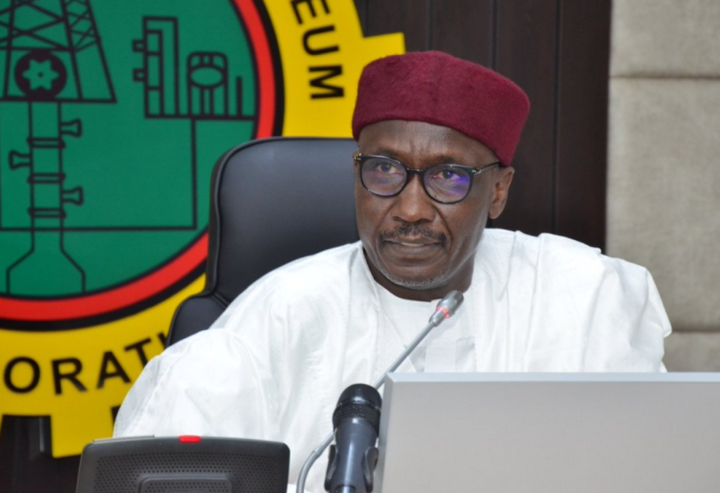The Nigerian National Petroleum Company Limited (NNPC Ltd) is reportedly considering divesting from some of its state-owned refineries, following recent remarks by Africa’s richest man and Chairman of the Dangote Group, Aliko Dangote, questioning the economic viability of rehabilitating government-run refineries.
Dangote, whose newly commissioned 650,000 barrels-per-day refinery in Lagos is set to be the largest in Africa and among the biggest in the world, recently voiced concerns about the cost-effectiveness and strategic rationale behind ongoing efforts to revamp Nigeria’s long-dormant refineries. His comments, made during a public engagement in Lagos, sparked renewed debate about the future of the country’s downstream oil sector and the need for efficiency and private sector leadership.

Sources close to NNPC Ltd have disclosed that top executives are now weighing the option of partial or full privatization of the country’s four existing refineries—located in Port Harcourt, Warri, and Kaduna—amid growing pressure to optimize operations, reduce fiscal burdens, and refocus the company’s priorities in line with global oil industry reforms.
The move is still at a preliminary stage, but insiders suggest that internal discussions are being held at the highest levels of the corporation, including the Presidency, with a view to inviting expressions of interest from credible local and international investors. The goal is to either concession or outright sell the refineries, which have remained largely unproductive for decades despite several rounds of turnaround maintenance and billions of dollars spent.
Speaking anonymously, a senior NNPC official said the Dangote Refinery’s impending commercial operations have effectively changed the landscape of Nigeria’s oil refining business. “The emergence of the Dangote Refinery creates an undeniable shift. We now have to be realistic and strategic. Operating inefficient government-owned refineries in the shadow of such a massive private facility is economically questionable,” the official stated.
The Dangote Refinery, which began refining operations in 2024, is expected to meet Nigeria’s entire fuel demand and produce surplus for export. This is a stark contrast to NNPC’s refineries, which have struggled for decades due to chronic under investment, mismanagement, corruption, and outdated infrastructure. While the federal government has invested over $25 billion in refinery rehabilitation efforts over the past 20 years, the facilities have failed to consistently deliver refined petroleum products at scale.
Aliko Dangote, during his address, remarked, “Rather than spend billions to revive non-performing assets, it may be more prudent to explore full liberalisation of the sector and allow the private sector to drive efficiency.” His comments have added weight to longstanding calls by economists, civil society groups, and oil sector experts for government divestment from commercial enterprises.
Meanwhile, NNPC’s Group Chief Executive Officer, Mele Kyari, has neither confirmed nor denied the reports of a possible sale but hinted at a more business-focused direction for the national oil company during a recent energy conference. Kyari reiterated NNPC’s transformation into a limited liability company under the Petroleum Industry Act (PIA), which mandates commercial orientation and profit-driven operations.
“Everything we do now is subject to profitability, efficiency, and shareholder value,” Kyari said. “We are open to partnerships, private investments, and new business models that align with global best practices.”
He also acknowledged that the industry was evolving and NNPC must be positioned to operate sustainably in a liberalized market. According to Kyari, decisions regarding the future of the refineries will be guided by commercial logic and the long-term interest of the Nigerian people.
Reactions to the potential sale have been mixed. Supporters of the idea argue that it is long overdue and necessary to free up government resources for other pressing national priorities. They point to the success of privatization in other sectors, such as telecoms, and believe that refinery privatization could lead to better services, job creation, and enhanced fuel availability.
On the other hand, labour unions, particularly the Petroleum and Natural Gas Senior Staff Association of Nigeria (PENGASSAN) and the Nigeria Labour Congress (NLC), have expressed concern over job losses, asset undervaluation, and possible exploitation by private interests. They have called for transparency and worker protections in any sale arrangement.
Industry analysts believe that NNPC could retain minority stakes in the refineries while handing over operational control to technical partners with proven track records. This model, they argue, could help avoid past pitfalls while leveraging private capital and expertise.
As Nigeria grapples with high energy costs, persistent fuel scarcity, and rising demand, the question of refinery efficiency remains critical. The success of the Dangote Refinery has raised the bar and changed expectations. With the country’s oil sector under increasing scrutiny, NNPC’s next steps will likely shape the future of energy security, pricing, and investment in Africa’s largest oil producer.
While official confirmation is still pending, the possibility of NNPC exiting the refinery business appears to be gaining momentum. The coming months may provide more clarity as stakeholders debate the future of Nigeria’s refining infrastructure in the era of market-driven oil policy.
Support InfoStride News' Credible Journalism: Only credible journalism can guarantee a fair, accountable and transparent society, including democracy and government. It involves a lot of efforts and money. We need your support. Click here to Donate
